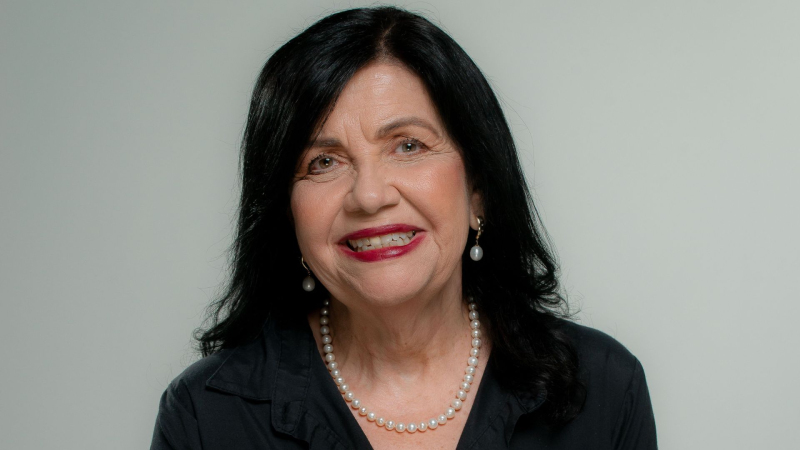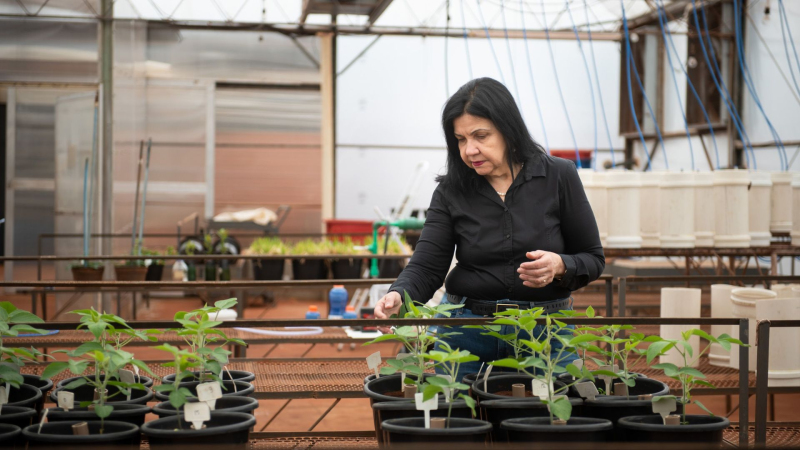
TWAS Fellow and Brazilian microbiologist Mariangela Hungria is the 2025 recipient of the World Food Prize for her extraordinary scientific advancements in biological nitrogen fixation, transforming the sustainability of soil health and crop nutrition for tropical agriculture.
"TWAS is pleased and proud to hear the wonderful news that Mariangela Hungria, TWAS Fellow from Brazil, has been named the 2025 World Food Prize Laureate. This prestigious recognition celebrates her decades of groundbreaking and transformative research in developing environmentally friendly agricultural solutions. Her work has improved the lives of hundreds of farmers around the world and made meaningful contributions to planetary health," said TWAS President Quarraisha Abdool Karim.
“Our warmest congratulations, Mariangela! Thank you for inspiring young scientists across the Global South, as well as leading researchers worldwide, to pursue innovative solutions to both local and global challenges,” she added.
Mariangela Hungria, a microbiologist from São Paulo, has developed dozens of biological seed and soil treatments that help crops source nutrients through soil bacteria, significantly increasing yields of major crops while also reducing the need for synthetic fertilizer. Her products are estimated to have been used across more than 40 million hectares in Brazil, saving farmers up to US$40 billion a year in input costs while avoiding more than 180 million metric tons of CO2 equivalent emissions per year.

Brazilian TWAS Fellow Mariangela Hungria, 2025 recipient of the World Food Prize. (Photo: World Food Prize Foundation)
Over her 40-year career with the Brazilian Agricultural Research Corporation (Embrapa), national soybean production increased from 15 million tons in 1979 to an anticipated 173 million tons in the coming harvest.
“I can’t quite believe I am now receiving the World Food Prize. Many people questioned me and my abilities throughout my career, but I believed in what I was doing and persevered. The role of women in agriculture, from farming to science, deserves more recognition. Replacing the use of chemicals with biologicals in agriculture has been the fight of my life, and I hope my achievement inspires others to pursue their passions in science," Hungria said.
About the World Food Prize
The World Food Prize is a $500,000 award that recognizes contributions in any field involved in the world food supply including, but not limited to: plant, animal and soil science; food science and technology; nutrition; rural development; marketing; food processing and packaging; water and the environment; natural resource conservation; physical infrastructure; transportation, storage and distribution; special or extraordinary feeding programs; social organization and poverty elimination; economics and finance; policy analysis; and public advocacy. The World Food Prize calls forth the global imperative to provide safe, affordable, nutritious, sustainable, and equitable food for all. By honouring those who have worked successfully toward this goal, the Prize uplifts the work and reminds us of all to be accomplished in the future.
About Mariangela Hungria
Mariangela Hungria got her PhD in agronomy (soil science) from the Federal University of Rio de Janeiro, Brazil, and held postdoctoral positions at the universities of Cornell, California-Davis (US), and Seville (Spain). She has been a researcher at Embrapa since 1982, at Embrapa Soja (Londrina) since 1991, and a researcher of the National Council of Scientific and Technological Development (CNPq) since 1992. She is a professor of microbiology and biotechnology at the University of Londrina, and supervised more than 100 MSc and PhD students. Her experience is in agronomy, with emphasis on soil biotechnology: biological nitrogen fixation, biodiversity, taxonomy and phylogeny of prokaryotes, microbial ecology, soil microbiology, plant growth-promoting bacteria, plant physiology, inoculant production, technologies of inoculation, omics sciences, and microbial culture collections. She has over 500 refereed scientific articles, book chapters, books, and technical publications. She launched more than 20 technologies, including microbial strains and commercial inoculants. She received more than 20 prizes, including the TWAS-Lenovo Science Award (2020). She is a member of the Brazilian Academy of Sciences.

